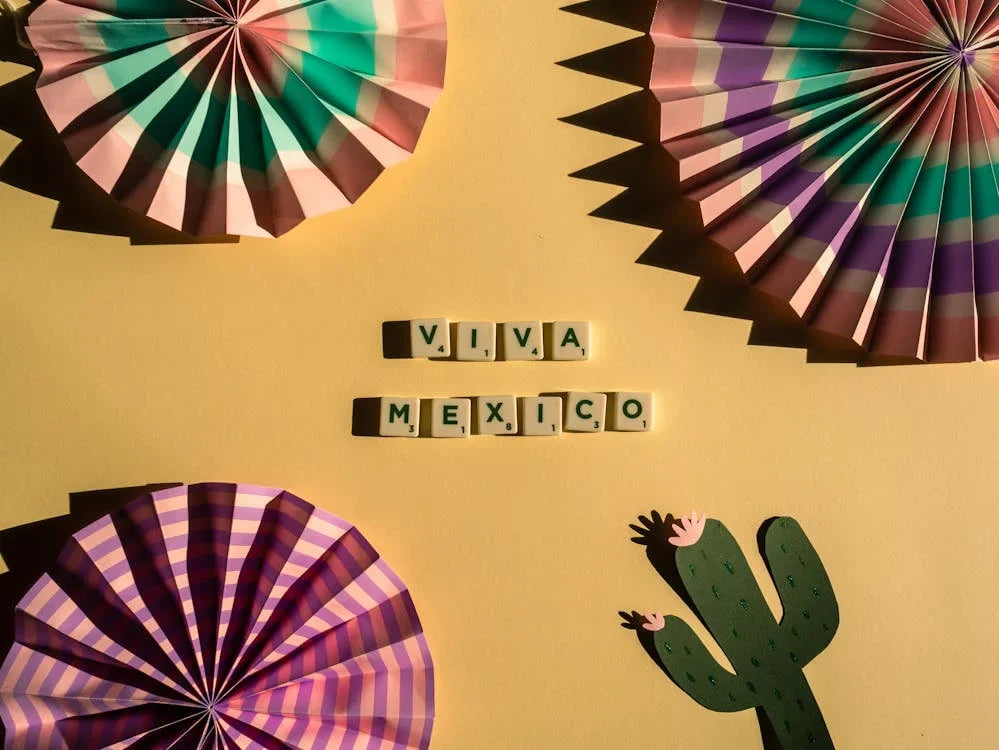
20 Classic Mexican Spanish Phrases That Capture Daily Life
Share
The Heart of Mexican Spanish
Mexican Spanish is a vibrant and expressive variant of the language, full of unique idioms and colloquial expressions that reflect the country’s culture, humor, and way of life. Whether you’re traveling through Mexico, chatting with native speakers, or simply fascinated by the richness of the language, mastering these classic Mexican Spanish phrases will bring you closer to understanding the daily life and spirit of its people.
If you’re looking for an immersive way to improve your understanding of Mexican Spanish, Short Stories in Mexican Spanish offers an engaging collection of entertaining narratives that introduce essential vocabulary in a natural and enjoyable way.

Common Expressions in Daily Life
Mexican Spanish is filled with phrases that go beyond literal meaning. These expressions capture emotions, social interactions, and even humor, making them essential for sounding more natural in conversations.
1. ¡Órale!
This versatile phrase can mean surprise, encouragement, or agreement, depending on the context. It is used in different situations, from expressing amazement to pushing someone to take action.
Examples:
- "¡Órale! No sabía que hablabas español tan bien." (Wow! I didn’t know you spoke Spanish so well.)
- "Órale, apúrate o llegaremos tarde." (Come on, hurry up, or we’ll be late.)
2. No manches
A popular phrase used to express disbelief or surprise, similar to “No way!” or “You’ve got to be kidding me!”
Examples:
- "No manches, ¿en serio ganaste la lotería?" (No way, did you really win the lottery?)
- "No manches, qué calor hace hoy." (Wow, it's so hot today.)
3. Chido
This slang word is synonymous with “cool” or “awesome.” It is commonly used to describe things, experiences, or even people in a positive way.
Examples:
- "Ese concierto estuvo bien chido." (That concert was really cool.)
- "Tu carro está chido." (Your car is awesome.)
4. ¿Qué onda?
A casual greeting, similar to “What’s up?” or “How’s it going?” in English. It can also be used to ask about a situation.
Examples:
- "¡Hola! ¿Qué onda contigo?" (Hey! What’s up with you?)
- "¿Qué onda con la fiesta del viernes?" (What’s up with the party on Friday?)
5. Aguas
A warning expression that literally means “waters” but is used to alert someone to be careful or pay attention.
Examples:
- "¡Aguas! Hay un charco en el piso." (Watch out! There’s a puddle on the floor.)
- "Aguas con ese perro, muerde." (Be careful with that dog, it bites.)
Expressions of Emotion and Surprise
6. ¡Híjole!
This exclamation is used to express surprise, frustration, or amazement. It is often used in moments of strong emotion.
Examples:
- "¡Híjole! Se me olvidó la tarea." (Oh no! I forgot my homework.)
- "¡Híjole! Qué difícil está este examen." (Wow! This test is really hard.)
7. ¡Ándale!
A word that conveys encouragement, urgency, or agreement, often heard in daily conversations.
Examples:
- "¡Ándale! No tenemos todo el día." (Come on! We don’t have all day.)
- "Ándale, te veo en el café a las cinco." (Alright, I’ll see you at the café at five.)
8. ¡Qué padre!
A phrase that expresses excitement or admiration, similar to saying “That’s awesome!” in English.
Examples:
- "¡Qué padre tu casa nueva!" (Your new house is awesome!)
- "¡Qué padre que puedas viajar tanto!" (It’s so cool that you can travel so much!)
9. ¡Chale!
This word conveys disappointment, frustration, or disapproval. It is commonly used to react to bad news or an unfortunate situation.
Examples:
- "Chale, se me olvidaron las llaves en casa." (Damn, I forgot my keys at home.)
- "Chale, no puedo ir a la fiesta hoy." (That sucks, I can’t go to the party today.)
10. ¡Sale y vale!
A friendly way to say “Alright” or “Sounds good,” often used to confirm an agreement.
Examples:
- "Nos vemos a las ocho. —¡Sale y vale!" (See you at eight. —Alright, sounds good!)
- "Si necesitas ayuda, dime. —¡Sale y vale!" (If you need help, let me know. —Alright!)

Phrases for Social Situations
11. La neta
A slang expression that means “the truth” or “honestly.” It is often used to emphasize sincerity.
Examples:
- "La neta, no me gusta ese lugar." (Honestly, I don’t like that place.)
- "Te digo la neta, estuvo aburridísimo." (I’m telling you the truth, it was really boring.)
12. Ponte las pilas
A motivating phrase that means “Get moving” or “Be alert.” It is used to encourage someone to be more proactive.
Examples:
- "Si quieres ganar, ponte las pilas." (If you want to win, step up your game.)
- "Ponte las pilas en el trabajo, te están observando." (Be more proactive at work, they are watching you.)
13. Estar en la luna
This phrase translates to “being on the moon” and describes someone who is distracted or daydreaming.
Examples:
- "Siempre estás en la luna en clase." (You’re always daydreaming in class.)
- "No escuchaste nada, estabas en la luna." (You didn’t hear anything, you were spacing out.)
14. ¡Ya chole!
A phrase used to express annoyance or say “Enough already!” when something is repetitive or irritating.
Examples:
- "¡Ya chole con tanto tráfico!" (Enough already with so much traffic!)
- "¡Ya chole con tus excusas!" (Enough already with your excuses!)
15. Cámara
This slang word is used to express agreement or as a farewell, similar to saying “Alright” or “See you later.”
Examples:
- "Nos vemos mañana. —¡Cámara!" (See you tomorrow. —Alright!)
- "Cámara, hablamos luego." (Alright, we’ll talk later.)
16. Más vale tarde que nunca
This proverb translates to “Better late than never” and is used to encourage people to act, even if they are delayed.
Examples:
- "Finalmente empezaste a aprender español. Más vale tarde que nunca." (You finally started learning Spanish. Better late than never.)
- "No llegaste a tiempo, pero más vale tarde que nunca." (You didn’t arrive on time, but better late than never.)
17. El que madruga, Dios lo ayuda
A well-known saying that means “The early bird catches the worm.” It emphasizes the importance of being proactive and starting early.
Examples:
- "Si quieres aprovechar el día, despiértate temprano. El que madruga, Dios lo ayuda." (If you want to make the most of the day, wake up early. The early bird catches the worm.)
- "Vamos a salir temprano a la playa. El que madruga, Dios lo ayuda." (Let’s leave early for the beach. The early bird catches the worm.)
18. Barriga llena, corazón contento
This phrase translates to “A full belly, a happy heart,” highlighting the connection between good food and happiness.
Examples:
- "Después de esa cena tan rica, me siento increíble. Barriga llena, corazón contento." (After that delicious dinner, I feel amazing. A full belly, a happy heart.)
- "Vamos por unos tacos, ya sabes, barriga llena, corazón contento." (Let’s get some tacos, you know, a full belly, a happy heart.)
19. Al mal tiempo, buena cara
This expression means “Put on a good face in bad times” and encourages optimism in difficult situations.
Examples:
- "Perdimos el partido, pero no pasa nada. Al mal tiempo, buena cara." (We lost the game, but it’s okay. Keep a positive attitude.)
- "No encontré trabajo aún, pero seguiré intentándolo. Al mal tiempo, buena cara." (I haven’t found a job yet, but I’ll keep trying. Stay positive.)
20. No hay peor lucha que la que no se hace
A motivational phrase that translates to “The only battle you lose is the one you don’t fight.” It encourages perseverance and determination.
Examples:
- "Intentaré conseguir el ascenso. No hay peor lucha que la que no se hace." (I’ll try to get the promotion. You never know unless you try.)
- "Voy a participar en la competencia. No hay peor lucha que la que no se hace." (I’m going to compete. You have nothing to lose by trying.)

The Beauty of Mexican Spanish
Mexican Spanish is a lively and colorful language that reflects the warmth, humor, and resilience of its people. By learning and using these expressions, you not only improve your Spanish skills but also gain a deeper appreciation of Mexican culture.
If you want to explore more about authentic Mexican Spanish in an engaging way, Short Stories in Mexican Spanish is a perfect resource. With entertaining narratives and essential vocabulary, it helps you immerse yourself in the language naturally.
Embracing these classic phrases will make your conversations more authentic and enjoyable. So next time you speak with a Mexican Spanish speaker, don’t hesitate to throw in an “¡Órale!” or a “¡Qué padre!”—you’ll sound much more natural and connect on a deeper level.
